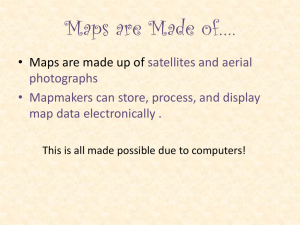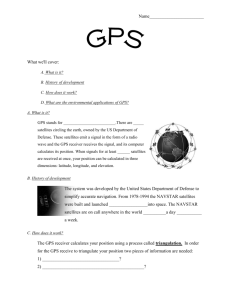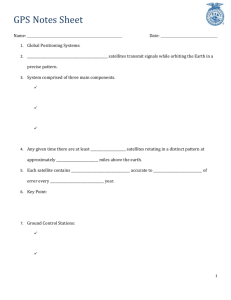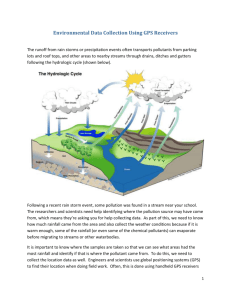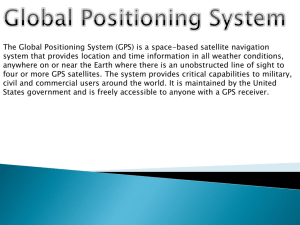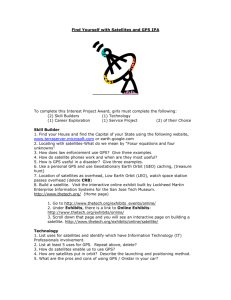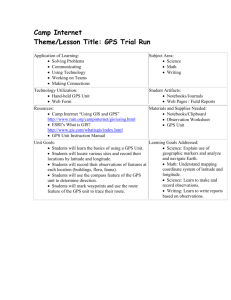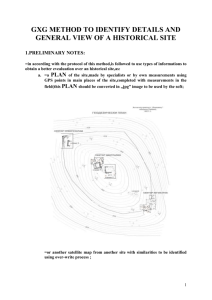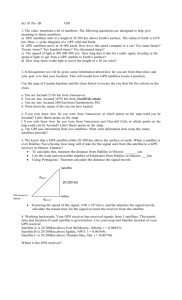How GPS Works
advertisement
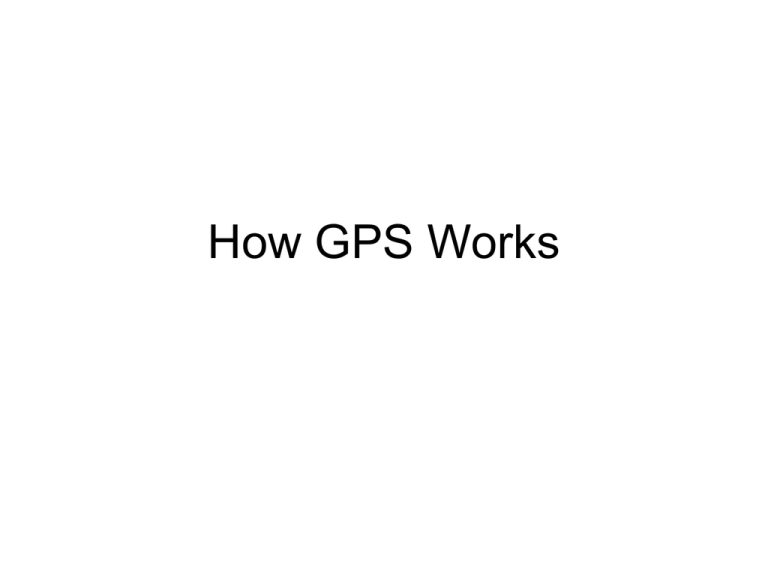
How GPS Works NAVSTAR • • • • • • • • NAVigation Satellite Timing And Ranging Operated by Air Force Launch Weight 1800 kg (4000 lb) Orbital radius 20,200 km Orbital Period 12 hours Inclination 55 degrees 24 active, 4 spare 4 planes, 6 satellites per plane Locating Earthquakes Locating Earthquakes - Depth GPS and Seismology • GPS is a lot like locating earthquakes – Use Trilateration – Locate an unknown point using distances from three known points – Unknown point is actually at intersection of three spheres (in earth, sort of) • One important difference – Earthquakes create signals with different speeds so distance is coded in the signal The Timing Problem • • • • Travel time = Radius to satellite Distance to NAVSTAR: 14,000-20,000 km Travel time =.05-.07 seconds Have to measure travel time to sub-ppm accuracy • How do you know radius if you don’t know where you are? • Synchronized signals in GPS unit and satellite Signals in GPS An Early Pseudo-Random Code • • • • • • • 1776 (seed) 17762 = 3154176 15412 = 2374681 37462 = 14032516 40322 = 16257024 62572 = 39150049 91502 = 83722500, etc. The Clock Problem • Atomic clocks costs thousands of dollars – In the overall budget of a satellite program, that’s chump change – In the cost of a hand-held GPS unit, not so much • GPS units use inexpensive quartz clocks – Not precise enough – One microsecond = 300 meters • Have satellites broadcast time signals? – How do we know the travel time? • Unpredictable timing error introduced Timing Errors • Satellite positions known precisely and ephemeris (or almanacs) updated regularly • If distances r1, r2, r3 are known, we can solve for latitude, longitude, and elevation • 3 variables, 3 unknowns • If we also have to solve for an unknown timing error, three radii are insufficient Effect of Timing Error Correcting Clock Errors • We have four unknowns: latitude, longitude, elevation and error • Can solve with four satellite fixes • Once error is known, can reset GPS unit clock • This is why the magic number of four for GPS signals • Full x,y,z solution = 3D What About Less Than Four? • We have four unknowns: latitude, longitude, elevation and error • Three satellites aren’t enough • But we have a fourth sphere: the Earth • May have to make assumptions about radius due to oblateness of earth and topography • Can get latitude and longitude (2D) and accuracy limited
